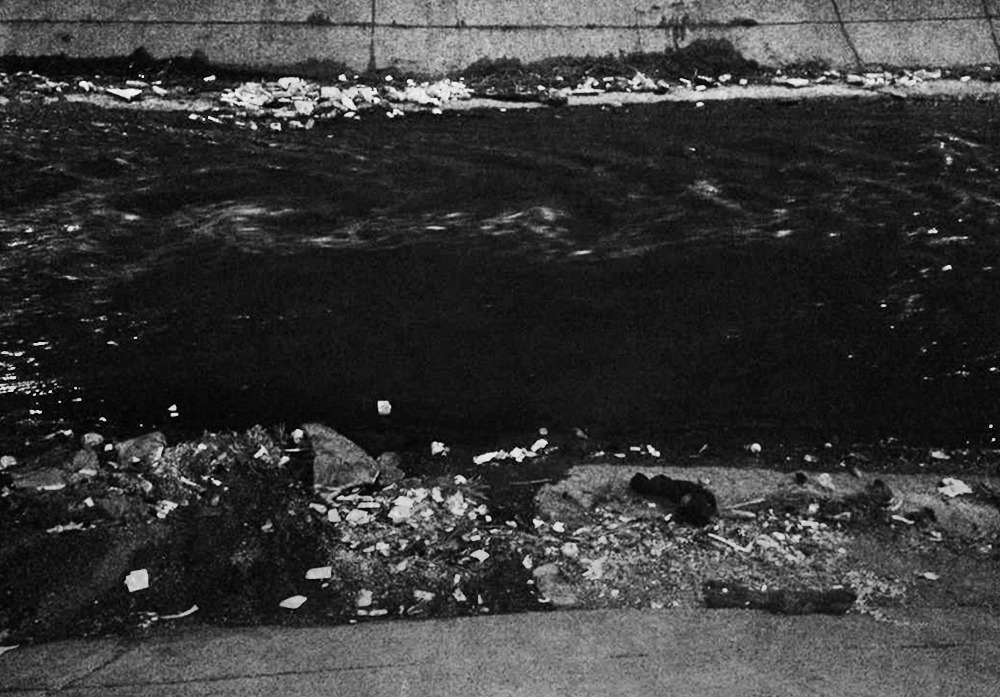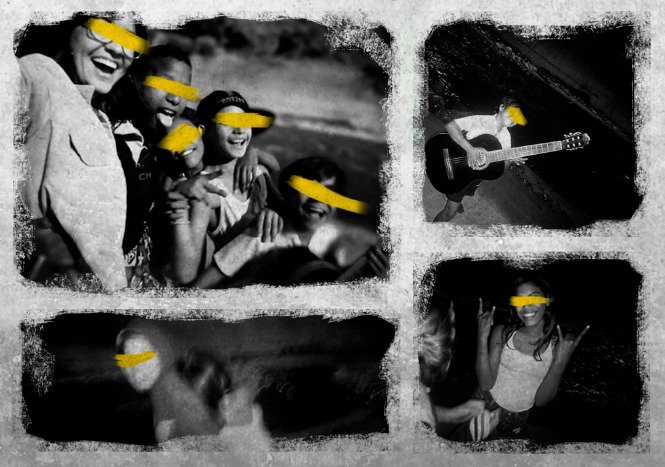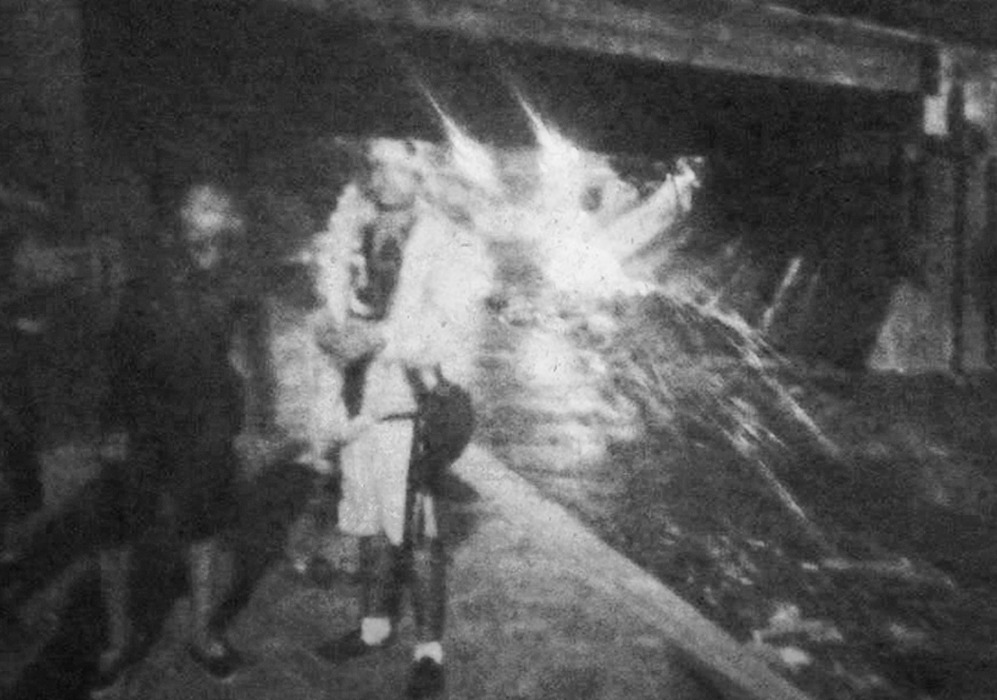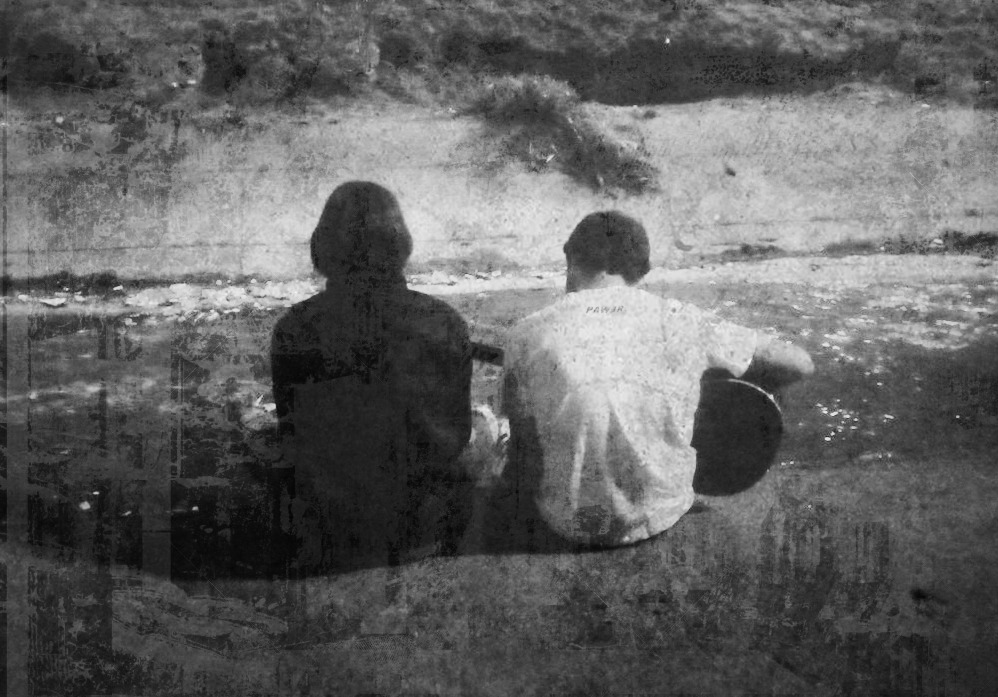El Guaire: Love in the Time of Cholera
Camaraderie, friendship, happiness and beauty can flourish after the worst of circumstances and in the dirtiest of places. The Guaire river may split Caracas in two, but it brought these young Venezuelans together.


Photos: Ana bell Leal and Gabriela Mesones Rojo
In loving memory of Oreja
I had never seen, up close, the homeless communities that border the Guaire, the iconic river turned open-air-sewer that breaks through Caracas. Once, the Guaire was a fundamental water source for a rapidly growing city. Now, it’s a symbol of decay: a river of trash, shit and industrial waste. Bodies have been found in it, and car accidents have taken many straight to the bottom.
Hundreds of communities live under highways on the concrete embankments that today make up the Guaire shores. “Everyone hates us,” said O, as we ate pasta and sausages, listening to the freestyle battle behind us. “To them, we’re nothing. We’re dirt: invisible, unworthy. This is the first time people come to see us and have fun with us.”
We ate looking straight into the river and spoke of drug addiction. Turns out, we had both been addicted to the same anxiolytics and powders back in the day.
The evening began at 10:00 p.m., when I arrived to the Plaza Madariaga, El Paraíso, with three Free Convict members, a hip hop band born in the Penal General, currently closed, but one of the most violent and forgotten jails of our penitentiary system. Free Convict started behind bars, but the founders are free now, free convicts indeed. They’re changing the city through their music, which is violent and hopeful, funny and heartbreaking. We were invited by Otro Enfoque, an ONG that focuses on helping and strengthening homeless communities.
Plaza Madariaga is secured by La Guardia del Pueblo, a semi-official chavista militia. As soon as we arrive, a guard stands next to us. He quickly shares his love for hip hop and trap music: “People sometimes think authorities don’t listen to that kind of music. But I do, and I love it.”
A freestyling session starts right away. They sing to reggae tunes while children and adults from the river join us. My first friend of the evening was greeneyed B, who walked long and dark streets with me in search for cigarettes. “I did jail time for a while, several times. The last time it was because I found my guy fucking some bitch. I wanted to scare her, shoot her in the leg. Turns out, I grabbed an automatic gun, and pierced her with 28 bullets. I got pregnant in jail, so they let me out. Right now, all I care about is peace. I can’t even begin to understand the violence I used to live in. That’s all in the past.” We find cigarettes and scream our way back, running away from a rat that tried to attack us in the middle of the street.
We walk towards the Guaire and we’re told to pick up our pace in front of La Comandancia, the headquarters of the National Guard. La Comandancia looks like a flamenco palace made out of candy and Christmas lights. We cross the dark highway, not a lightbulb to help us do the deed. We go down a steep mountain surrounded by rusty metal and glass.
 The Guaire, the iconic river turned open-air-sewer that breaks through Caracas.
The Guaire, the iconic river turned open-air-sewer that breaks through Caracas.
I had never seen the river so close. Many escaped the protests’ repression by crossing it, but when the police rampages, I never run towards it: it terrifies me. I’ve had nightmares where I get sucked into the river’s flow and drown looking at the stars. As I stare into the river, L, 6, comes up to share the landscape with me: “You have to see it like a dangerous street. Don’t be too scared of it, but don’t be too easy around it.”
Sleeping one night on the banks of the Guaire helped me understand some important things. Heaven and hell are usually one and the same. Atrocities are rarely committed without cause. Beautiful things can blossom in the shadows.
Everyone’s excited. They spent the morning cleaning the place, getting ready for tonight’s party. We connected the speakers to the power units brought by Otro Enfoque, and the celebration began. Some children run around, while others play “the stabbing game”, right next to the border of the river. Whoever falls, loses.
The Guaire has its own musical beat. Music is fundamental in Caracas’ street life and the river has accommodated a good amount of homeless musical souls. A freestyle battle takes place as they sing from love and darkness, with lyrics about pussy, violence, despair and strength. Rap and graffiti are their main cultural interest. “I know my views of the world matter. I see the river with all of its colours, and I know damn well how to express them,” says N, holding a paper with a beautiful bright sunset and a pimped motorcycle in his hands. Art is also a home that keeps your thoughts warm.
I overhear the conversations between the members of Free Convict and those who live in the river. Dosk tells them about his own experience living in the streets after jail, and F remembers the depresion he sunk into after his last detention: “My brothers and friends died young, I felt I had no future, that I was going to live a life of violence and death. But now I see the whole picture. I’ve learned to enjoy life again.” Sometimes, it’s hard to understand our mistakes can be a thing of the past. But they can.
 These children’s stories are diverse, kaleidoscopic, but there’s one thing they have in common: absent, negligent, abusive, sick, imprisoned, migrant families.
These children’s stories are diverse, kaleidoscopic, but there’s one thing they have in common: absent, negligent, abusive, sick, imprisoned, migrant families.
We set up the fireplace and start cooking with water from the mountain. “People say we eat cats and dogs. That’s a lie. I’d rather eat shit,” says P, probably the happiest of the teens. He has a wide smile and killer dance moves.
A mother’s love and a new family
An army of children sleep and live there. Many have homes, but their friends live in the river, and in the end, los panas son los panas. Everyone is so young, they can’t even guess my age.
“Are you 17?” asks V. “No, I’m 29, I’ll be 30 soon.”
“I don’t think so, I think you’re 17.”
These children’s stories are diverse, kaleidoscopic, but there’s one thing they have in common: absent, negligent, abusive, sick, imprisoned, migrant families.
“I left because my mother was charging money to have men rape me,” said A, 16, as she showed me the mattress she was going to lend me for the night. “My uncle told me to run away. I did. I was running for my life. I never talk about this because it’s hard for me to understand: why did I have the mother I had? I’ve been living here for two months. I’m in love with El Moreno now. I found a new family. We take care of each other.”
She’s a strong, independent teen, not broken by crime or drugs, but by abuse and loneliness.
 Sleeping one night on the banks of the Guaire helped me understand some important things. Heaven and hell are usually one and the same. Atrocities are rarely committed without cause. Beautiful things can blossom in the shadows.
Sleeping one night on the banks of the Guaire helped me understand some important things. Heaven and hell are usually one and the same. Atrocities are rarely committed without cause. Beautiful things can blossom in the shadows.
Y talks about his mother in tears: “She got sick and had to go to Colombia. My brothers went with her. I was left here alone, doing drugs utterly depressed. I never thought I’d end up living under a bridge. But I’m better now. I shower. I feel accepted. I feel I am part of something. I dream of seeing my mother again. I dream of finding the money to go to Colombia to take care of her. She doesn’t know I live in the streets. It would kill her.”
We hug, he holds tight and lets go.
The river’s economy
“I used to be disgusted by garbage. But now I live from it. We open the bags of trash and find treasures. I have found whole packs of rice, flour, CLAP boxes. I once found a huge black bag full of chorizo and serrano. Damn, I have even found gold chains,” says O. Trash hunting is called recycling in the river’s economy lingo. Most of the community lives from it. One man’s trash is another man’s come up. “We walk the city, and sometimes the police beat us. I have never eaten rotten food. We only take what’s good for us.”
I take out a cigarette and A shows me what they smoke: Chimbombo, made from tobacco studs wrapped in paper bags. We share the river-made cigarette while Masacre, 17, stares at me. “Masacre, do you recycle?”
Silence.
He stares back.
“What do you do for a living?”
“I don’t recycle. Trash is disgusting.”
A serenade in El Guaire
We made a circle around the bonfire and asked everyone to say a positive thing about the community. I witness joy, compassion, camaraderie.
“Jason always saves me when I fall into the river. Without him, I’d be dead,” says K.
“These people are my family, they have restored my hope. If I dream again it’s only because of them,” says N.
“Gaby,” says Cocodrilo, speaking straight to one of the coordinators from Otro Enfoque, “my true love died, but you remind me of her. I’m gonna say it loud and clear: I love you. I love everything about you and how you make me feel.” Ray, one of the members of Free Convict, takes his guitar and starts singing to his own love: Zuly, founder of Otro Enfoque. His heartfelt serenade makes us come closer, as the river rattles in the background and the cold wraps our bones.
 Their heartfelt serenade makes us come closer, as the river rattles in the background and the cold wraps our bones.
Their heartfelt serenade makes us come closer, as the river rattles in the background and the cold wraps our bones.
Laughing at death
N, 19, now lives in a room. But he once lived under the highway after his family left him on the street one day. He’s a rap god. He sings to hell itself, defies death and likes speed. He’s a cursed poet that learned to sing and draw sunsets in the river.
De la muerte
de ella siempre
de frente
compadre
yo siempre me rio
Suddenly, we hear three gunshots in the distance. K tells me that the police and GNB shoot to the river. They suffer police brutality almost daily. “Last week, the GNB came to the river. They beat us, threw tear gas. They cut our hair and eyebrows. Burned our clothes. Threw our mattresses to the river. They took many of us to jail. Many have died here. Sometimes we see their ghosts.”
Accidents in the highway are the main cause of death.
“They may be accidents sometimes, but people are mean,” says El As, a Free Convict member.
“When one of us dies, we lose family. It’s hard to deal with sadness, but we try to remember the fun and the adventures, says V, a blond happy 7-year-old that likes selfies with her BFF.
That day we celebrated. We remembered our long gone brothers and honored freedom and life.
The next day, we saw the sunrise together, sitting next to the bonfire we lit. We hugged and made our Christmas wishes. We went up the river and crossed the highway. I got home, showered, and got a message: Oreja has just been murdered.
Oreja was a 12-year-old adventurous kid.
“He feared nothing,” said J. He got hit by a car, crossing the highway.
He died instantly, but the authorities didn’t get there for hours.
I remembered a conversation between El As and A, as we ate looking at the river: “Do you cry when one of you dies?”
“No, we laugh. Of course we cry. We cry like hell is about to break lose. Life is not a joke.”
Caracas Chronicles is 100% reader-supported.
We’ve been able to hang on for 21 years in one of the craziest media landscapes in the world. We’ve seen different media outlets in Venezuela (and abroad) closing shop, something we’re looking to avoid at all costs. Your collaboration goes a long way in helping us weather the storm.
Donate



